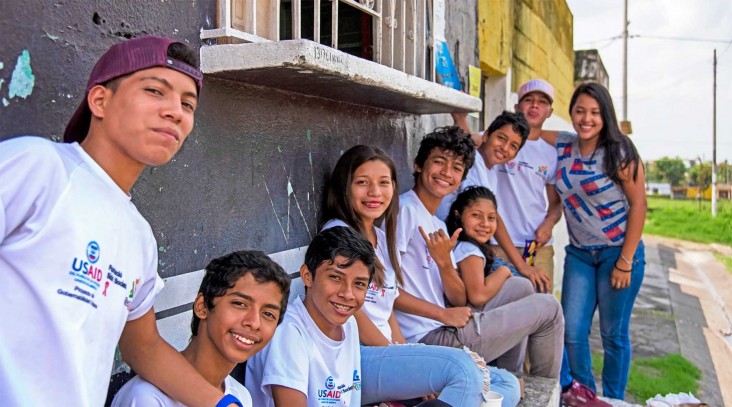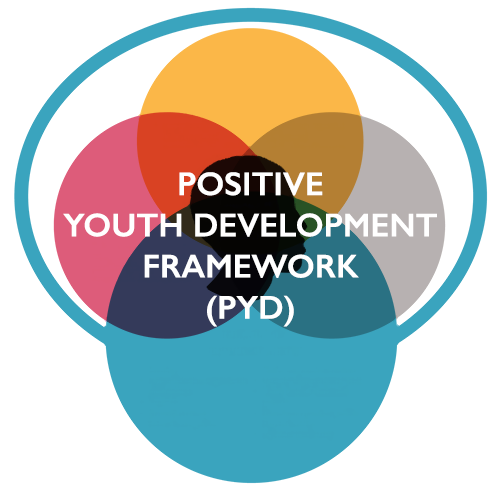USAID supports youth to take an active role in local and national level decision-making to give them a voice in framing Guatemala’s future.
Guatemala has the largest youth population in Latin America, with 61 percent of its people under the age of 30. Guatemalan youth face high levels of social and economic marginalization, insecurity, and lack of basic services, such as primary healthcare and secondary education. Ensuring that youth have the opportunities to fully participate in Guatemalan society is critical for the country’s future development.
USAID supports youth education programs and workforce training to help young Guatemalans develop the skills they need to build healthy lives and communities. USAID also promotes youth empowerment and inclusion to give young people a voice in Guatemala’s governance and actively participate to build a better future for tomorrow.
Economic Growth Through Education
For students and out-of-school youth in the Western Highlands, USAID/Guatemala is increasing access to quality education opportunities in order to build skills leading to sustainable livelihoods. USAID partners with the Government of Guatemala to reach out-of-school youth with alternative education programs, relevant workforce readiness and vocational training opportunities. USAID also supports Guatemala to break down barriers in order to increase more equitable access to quality educational opportunities and institutions across the nation regardless of socioeconomic status or ethnic/linguistic background.
Increasing Access to Jobs
Our activities are increasing jobs and income-generating activities for young people and facilitating conditions to encourage entrepreneurship. USAID/Guatemala programs support youth to pursue income generating activities, providing them with training in business development and management. USAID programs also directly support small businesses—particularly those with the potential to scale in size, efficiency, and scope—so that they are able to take advantage of Guatemala’s large and robust youth talent pool.
Preventing Youth Violence
USAID/Guatemala works to decrease the vulnerability of at-risk communities engaging with gangs and organized crime, improve trust between police and communities, and increase civic responsibility through community and municipal violence prevention activities. These programs emphasize how vital it is to provide alternative opportunities for youth, offering after-school activities by providing technical vocational training, improving reading skills to decrease school dropout and increase retention, and offering alternative education services for the more than two million out-of-school youth.
Healthy Living
USAID/Guatemala programs increase knowledge on healthy living, nutrition, reproductive health, and well-being—as well as improving access to, and uptake of, health services. In the Western Highlands, USAID’s family planning activities are expanding access and improving the quality of reproductive health information, education, counseling and services for youth. As current and future parents, USAID supports youth to provide for healthy and nourished families.
Context & Challenges
With 2.3 million youth out of school, a large percentage of Guatemala’s population have not been equipped with critical basic education and workforce skills. Of the minority that completes high school each year (an estimated 150,000), only about 50,000 find employment. Few job opportunities are available in the formal economy, thus many view immigration to the United States as a rational route to increase family well-being. USAID/Guatemala’s programs provide economic opportunities for Guatemalans in Guatemala.
In addition, Guatemalan youth are vulnerable to insecurity and violent conflicts. Guatemala is a transit country for trafficking in persons, illegal narcotics, arms and contraband. As other drug routes are disrupted, traffickers take advantage of the country’s geographic proximity to Mexico and land routes to the United States. Furthermore, transnational gangs like Mara Salvatrucha 13 (MS-13) and Barrio 18 have a strong presence in some of the country’s urban centers and are responsible for a significant share of Guatemala’s homicides and other violent crimes. USAID/Guatemala violence prevention and citizen security programs seek to make these areas safer for youth and their families.




Comment
Make a general inquiry or suggest an improvement.